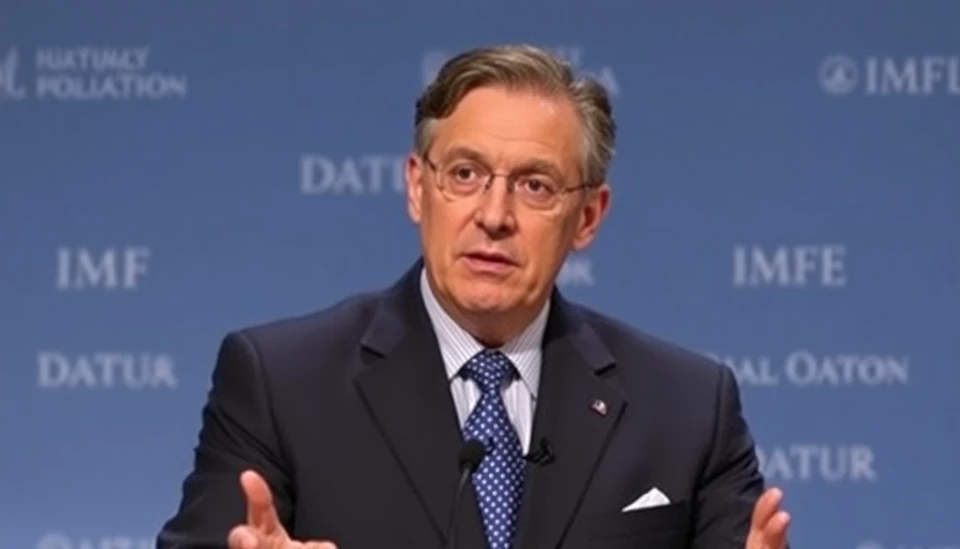
The International Monetary Fund (IMF) has announced a significant reduction in its global growth outlook, reflecting a myriad of challenges that have intensified since its last assessment. The latest report casts a shadow over the world economy, revealing that vital indicators and macroeconomic forecasts are under severe pressure, prompting concerns about a potential downturn.
In a press conference held on April 22, 2025, IMF officials stated that the global economic growth forecast for the year has been slashed to a meager 2.2%, a decrease from earlier projections that indicated a much more optimistic figure. This fresh assessment underscores a troubling reality where downside risks are now deemed to dominate the economic landscape, with inflationary pressures, geopolitical tensions, and supply chain disruptions being crucial contributors.
The IMF highlighted that inflation is stubbornly high in many regions, prompting central banks worldwide to continue their trend of aggressive interest rate hikes to stabilize prices. However, these measures are coming at the cost of economic expansion, with consumer spending beginning to wane as borrowing costs rise. In advanced economies, particularly, signs of slowed growth are evident, with households tightening their belts in response to elevated prices for essentials.
Developing and emerging economies are not immune either, as they grapple with the tail end of pandemic-era disruptions and the ongoing impacts of climate change. These nations face an uphill battle, struggling with both the financial implications of climate-related disasters and the inflationary shockwaves emanating from global markets.
Geopolitical tensions, particularly in Eastern Europe and parts of Asia, have exacerbated market volatility. These tensions have not only disrupted trade but have also contributed to investor uncertainty, further straining economic recovery. The IMF has urged global cooperation and policy coordination, arguing that such efforts are vital to mitigate potential economic fallout.
This dire outlook has raised alarms among policymakers, as many nations are already facing budgetary constraints that limit their ability to stimulate growth. The IMF’s report serves as a call to action, encouraging nations to implement robust fiscal policies that can bolster resilience in the face of these evolving challenges.
According to Kristalina Georgieva, the Managing Director of the IMF, "We are standing at a crucial juncture where decisive actions are required. The combination of increased inflation, geopolitical stress, and inadequate growth requires urgent attention from all stakeholders involved." As economies around the globe prepare for what may be a tumultuous period ahead, the need for a comprehensive strategy to address these mounting risks is more urgent than ever.
The IMF's revised projections have triggered discussions on necessary reforms and interventions needed to stabilize the economy. Economists and analysts will be keeping a close watch on trends in consumer behavior, inflation rates, and political stability as indicators of the direction the global economy may take.
#IMF #GlobalGrowth #EconomicForecast #Inflation #GeopoliticalTensions #EmergingEconomies #FiscalPolicy #EconomicStability
Author: Rachel Greene




